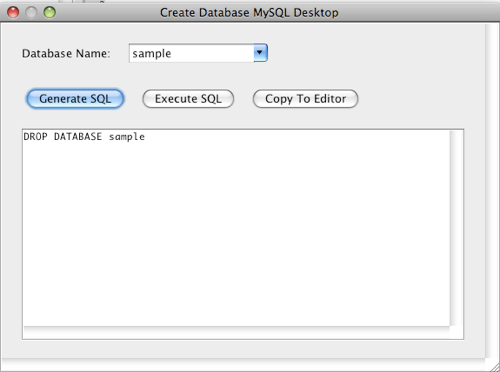

Local access), and will be immediately undone as soon as Inaccessible screwed MySQL installation (i.e. the above might sometimes be done, in exceedingly dire straits, by desperate and knowledgeable people, to gain access again to an otherwise.you allow literally everyone with any level of access whatsoever to the system to read and write your data, whether MySQL allows it or.if you do that to your SSH keys, goodbye SSHĬonnections etc.) since they realize they're now in a insecure context. you risk several security conscious programs to refuse to function anymore (e.g.By doing this (and chances are you won't be allowed to do Stuff, up to and including executing it as if it were a binary or shell Meaning, and 777 means " I hereby consent to everyone doing whatever they want with my Magic number that somehow MySQL programmers forgot to apply For those who don't already know, 777 (or 775, or 666) isn't a ( not Stack Overflow, thank goodness), the same "fix" I sometimesįind for Web and FTP problems - chown 777. I have happened upon an "easy fix" suggested on a "experts forum" If permissions and ownership match, and yet the above yields an access error, chances are that it's a security framework issue. To verify, check the system log for security violations, manually inspect apparmor/selinux configuration, and/or impersonate the mysql user and try going to the base var directory, then cd incrementally until you're in the target directory, and run something like touch aardvark & rm aardvark. So what you see is that the directory has correct permissions and ownership and yet it still gives Errno 13 because apparmor/selinux won't allow access to it.
DOCKER MYSQL DROP DATABASE FULL
What happens is that AppArmor expects mysqld to have its data in /path/to/data/dir, and allows full R/W there, but MySQLd is from a different distribution or build, and it actually stores its data elsewhere (e.g.: /var/lib/mysql5/data/** as opposed to /var/lib/mysql/**). On Linux, this can also happen if you mix and match MySQL and AppArmor/SELinux packages.
DOCKER MYSQL DROP DATABASE HOW TO
MySQL has no write permission on the parent directory in which the mydb folder resides.Ĭheck it with ls -la /path/to/data/dir/ # see below on how to discover data dir
DOCKER MYSQL DROP DATABASE UPDATE
Sample update command docker exec mysqldb mysqldump -routines -triggers -user=root -password=password dbname > /dir_path_on_your_machine/mysql-data/dump/db1.sql So, we can modify our command to include the above params for desired result. routines Dump stored routines (functions and procedures). We would need extra params with the in order to do that -triggers Dump triggers for each dumped table. However, the dump created using above commands will not dump stored procedures, functions and events. Then, we can execute the below command from cmd line or terminal docker exec mysqldb mysqldump -user=root -password=password dbname > /dir_path_on_your_machine/mysql-data/dump/db.sql So, for example if the container was created using below command docker run -name mysqldb -p 3306:3306 -e MYSQL_ROOT_PASSWORD=password -v /dir_path_on_your_machine/mysql-data:/var/lib/mysql -d mariadb:latest

Adding, this for the case where we have mapped the database to an external volume. Accepted answer stands accepted & correct in all its sense.


 0 kommentar(er)
0 kommentar(er)
